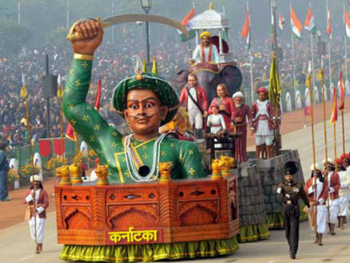Udupi, May 17: A total of 1,460 migrant labourers left for Uttar Pradesh from Indrali Railway Station in Udupi in Shramik Special train on Sunday.
This is the first train to ferry migrant labourers from Udupi. As many as 236 from Karkala, 323 from Kundapura, 901 labourers from Brahmavar, Kaup and Udupi left for their native villages.
More than 2,000 labourers had gathered at the railway station and only 1,460 labourers received tickets to travel.
Those who did not receive tickets were disappointed and got into heated arguments with the officials.
The labourers were promised that they will receive tickets to another train, that would depart from Udupi before May 20. One bogie of the train was reserved for pregnant women, women and children.
As many as 1,712 from Jharkhand, 770 from Odisha, 977 from West Bengal, 1,600 from Bihar, 379 from Madhya Pradesh, 280 from Chattisgarh, 110 from Uttarkhand, 379 from Rajasthan had registered on Seva Sindhu portal.
Additional Deputy Commissioner B Sadashiva Prabhu said that there are plans to make arrangements to send migrant labourers from UP, Uttaranchal, Madhya Pradesh and Jharkhand.
 Bengaluru, Oct 21: The state government has decided to go ahead with Tipu Jayanthi celebrations on November 10 despite opposition from the Sangh Parivar.
Bengaluru, Oct 21: The state government has decided to go ahead with Tipu Jayanthi celebrations on November 10 despite opposition from the Sangh Parivar.




Comments
Our Bopanna's character been improved a lot nowadays, think definitely patriotism will improve in the dirty blood of BJP/RSS goondas if all of them name their dogs Tipu like Bopu
Dear Bopu.. Atleast u call tippu daily :) So the name tippu will always be present in your home.. Thats appreciated..
I am calling my dog Tipu.
Add new comment